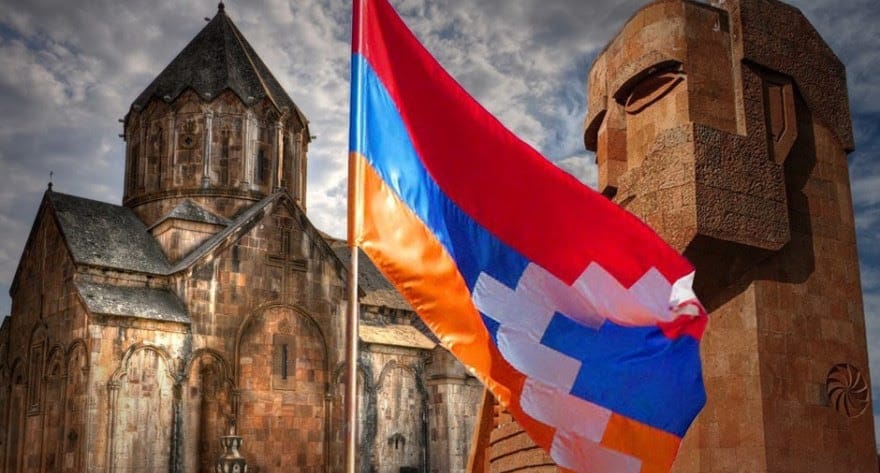THIRTY YEARS OF INDEPENDENT ARTSAKH

December 10 marked the thirtieth anniversary of the referendum in which more than 99 percent of the citizens of Nagorno-Karabakh, which had been an autonomous region within Soviet Azerbaijan, voted in favor of independence, in full accordance with Soviet law. Surrounded as they were, and still are, by barbarians of Turkish stock, they went on to defend their legitimate decision with guns and their lives –too many of them.
As the entire Armenian world still reels from the 44-Day War in which we lost an almost entire generation of young men in the bloom of their lives and large tracts of territory of our homeland were occupied by the enemy forces, it is more important than ever not to waver in our resolve. There are much larger forces involved in this conflict, yet we must stick to our principles, and our guns.
This is so, for Artsakh and Syunik—the adjoining region of southern Armenia—are of existential value for our homeland. Indeed, it was the continuous depredations by Turkic tribes and their kin (the whole of which today call themselves “Azerbaijanis,” a hurried moniker given to them by Enver and other masterminds of the 1915 Genocide as they were pushing forth their pan-Turkic plans) what moved prince Israel Ori in the 18th century to invite Russia to support Armenians as they fought for survival and freedom. At the time, the Church played a key role in the struggle, under the firm leadership of Gandzasar Catholicoi Yesayi Hasan-Jalaliants and Nerses of Jraberd.
And to date, the geopolitics of our part of the world have not changed much. Russia (in its incarnations as Tsarist Empire, Soviet Union and today’s Russian Federation) is still Armenia’s strategic partner. That cannot change anytime soon. Yet in the last war we became painfully aware of its limits.
Several factors are contributing to a rearrangement of the post-war world order. Armenia cannot escape the tailwinds these changes are bringing to its geopolitical space. These crises, too, create new opportunities: there are new secondary players—India, China, perhaps the EU—that may still benefit Armenia’s relative position.
But nothing will change the crux of the conflict. And no outsider power will send their men to die for Armenia, or for Artsakh. Artaskh is Armenia and Armenia is Artsakh: they are the two halves of the same homeland, and one can hardly survive without the other. This is no mere slogan. This mountainous part of the Armenian homeland has always punched above its weight: it brought the Russians to the Caucasus; its liberation movement contributed to the unraveling of the Soviet Union in the 1990s.
As the world sails in stormy waters, we Armenians need to have a steady hand at the helm. Less metaphorically, that means clarity of vision and leadership in our homeland, in our government, in our churches, in our communities. No one else will defend us or our homeland. As in other critical periods of our history, we need to rely on ourselves. The first condition for that is believing in ourselves. As instructed by Jesus, “Do not fear, only believe.” (Mark 5:36)
